Meet our speakers!
-
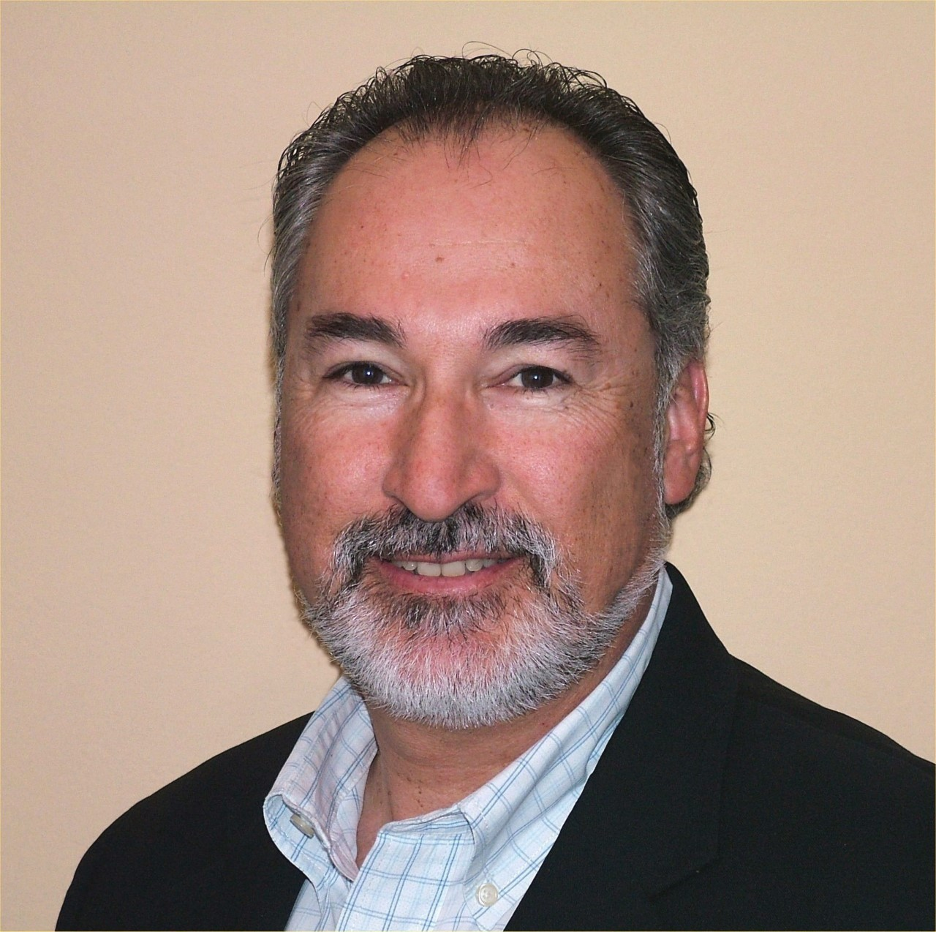
Willy serves as Industry Advisor at the NSF National Center for Atmospheric Research’s (NCAR) Capacity Center for Climate and Weather Extremes (C3WE). He led the Climate-i for Construction Workgroup and served as the Chair of the Advisory Panel for C3WE. Willy also serves on the leadership team for the ASTM E3429 Property Resiliency Assessment (PRA) standard guide and led the Stage 1 Hazard Identification subgroup. He formerly served as the Industry Liaison for climate adaptation at the University of Maryland’s Earth System Science Interdisciplinary Center (ESSIC) and chaired an Industry Advisory Panel conducting a Climate Applications Testbed, a joint pilot project between ESSIC, NOAA, and private industry. Willy represented private industry at NOAA’s Climate Prediction Center and Climate Program Office strategic planning meetings, contributed to The Royal Society’s Human Resilience to Climate Change and Disasters study, and in 2014 participated in the launch of the Climate Data Initiative at the White House under the Obama administration. His work has helped advance climate resilience by bridging communication between private industry and climate scientists in the United States and Europe.
Willy spent 15 years as the Director of Risk Management at Panattoni Development Company managing risk across 16 countries and advising on the acquisition and redevelopment of properties with environmental challenges. At Panattoni, he oversaw the redevelopment of over 40 million square feet of industrial properties with a value over $4.5 billion. He managed risk throughout Panattoni’s global operations, advised the company’s Investment Committees, and served as the chair of the Sustainability Committee. He negotiated and structured insurance, managed contractual risk, claims, and litigation for the company.
Prior to joining Panattoni, Willy spent 15 years as Vice President and General Manager at WSP, where he managed the Denver office, and 10 years as Division Manager at Greenhorne & O’Mara where in 1985 he co-founded the firm’s environmental practice. At Greenhorne & O’Mara, Willy directed the state-wide mapping of non-tidal wetlands across New Jersey and helped develop the technique subsequently adopted by the U.S. Fish and Wildlife Service in 1994 to map non-tidal wetlands across the entire U.S. (National Wetlands Inventory).
Willy served 13 years as a director and head of the audit committee at Quanta Indemnity Company, a multi-national specialty lines insurance company. Willy holds an advanced degree in Geochemistry and Remote Sensing from Purdue University, received the Distinguished Alumni Award from the University of Maryland, and is a Professional Geologist.
-

Marsha Anderson Bomar is the 2025 president-elect for the American Society of Civil Engineers.
She is currently Transportation Strategic Advisor to GHD, an international consultancy and have recently served as the Interim Commissioner of Transportation and Deputy Commissioner, Engineering for the Atlanta Department of Transportation as well as the Assistant General Manager for Capital Programs Delivery with MARTA (Metropolitan Atlanta Regional Transit Authority). She founded two consulting firms: Street Smarts in 1990 and Data Smarts in 1993, growing them to more than 120 employees and annual revenues of $20 million and created the Street Smarts Foundation as one vehicle for the firm’s philanthropic activities. The Foundation endowed the Mentor and Mentee program within Women in Engineering at Georgia Tech. In 2010, I sold the firms to Stantec. She also served as the Executive Director of the Gateway85 Community Improvement District, the largest CID in the state of Georgia.
Marsha is currently the President Elect of the American Society of Civil Engineers (ASCE) and served a three-year term on the Board of Direction. She was Technical Region Governor (overseeing 9 Technical Institutes) and has been the ASCE Treasurer. She is also featured as an Extraordinary Woman Engineer in ASCE publication entitled, Changing Our World, True Stories of Women Engineers, by Sybil E. Hatch, Copyright 2006, (page 88) and has served as President of the ASCE Transportation and Development Institute. She was awarded the William Wisely Civil Engineering Award and has served as the Chair for the International conference, “Green Streets, Highways and Development” and Co-chair of the International Conference on Transportation and Development.
Marsha is an International Past President of the Institute of Transportation Engineers and is past Chairman of the Institute's Technical Council Design Department, Policy Committee, and Transportation Planners Council. She has been the Chair of the Goods Movement Council and author of the Urban Travel Characteristics chapter of the Transportation Planners Handbook. She was a Director of the New Jersey Motor Truck Association, as well as the American Trucking Associations' Scholar-In-Residence. She has also been a special member of the Delaware Valley Regional Planning Commission's Urban Goods Movement Advisory Committee. Marsha chaired the Olympic (Atlanta) Transportation Task Force Support Group on Goods Movement for the 1996 Games in Atlanta, Georgia and served as lead for transportation for the Table Tennis Venue for the Paralympics.
Other significant affiliations include: Transportation Research Board (TRB) where she was co-chair of the Blue Ribbon award winning Women's Issues in Transportation Committee, WTS, where she served two terms on the International Board of Directors and was Board Treasurer. She served four terms on the Duluth City Council and authored many programs and policies, supported the growth of their Planning and Engineering efforts, and served three terms as Mayor Pro Tempore.
She has authored hundreds of publications and studies, has been a guest on numerous podcasts, listed in numerous Who's Who publications, has been a member of the Gwinnett County Board of the United Way, American Red Cross, Chamber of Commerce and a graduate of the Leadership Gwinnett program. She won numerous awards for technical, civic and business accomplishments and serve numerous non-profit organizations.
-

Kevin is a structural engineer and Principal at MKA whose work includes buildings as tall as 75 stories and developments larger than two million square feet. His clients value his team-first approach to finding sensible and innovative solutions to complex structural challenges. Kevin co-authored the book "Design and Performance of Tall Buildings for Wind," and he is an industry expert on topics related to tall buildings, seismicity, wind, and performance-based design. He is the leader of MKA's Performance-Based Design Technical Specialist Team (TST) and a member of the firm's Earthquake and Wind TSTs.
-
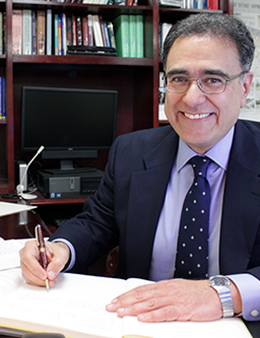
Dr. Ayyub is a Professor at the University of Maryland, College Park, and Director of its Center for Technology and Systems Management. He is a Visiting Professor, Imperial College London, UK; Senior Economist, Applied Economics Office, NIST, Department of Commerce, USA; Co-Director of its International Joint Research Center for Resilient Infrastructure, (chair professor 2016-18); Academician of The Georgian National Academy of Sciences; Science Advisory Board member, NOAA; and National Academies Board on Environmental Change and Society member. He was a visiting fellow in National Security Analysis at the Applied Physics Laboratory, JHU, 2015-16. He completed his doctorate degree from the Georgia Institute of Technology in 1983 and BSCE from Kuwait University, and his primary areas of research are in risk analysis in engineering and economics. He co-authored about 650 publications including 8 textbooks and 15 edited books, is the founding editor-in-chief of the ASCE-ASME Journal on Risk and Uncertainty in Engineering Systems. Dr. Ayyub is the recipient of several awards, most notably the 2024 ASCE OPAL Award for leadership in education, 2018 ASCE Alfredo Ang Award on risk analysis and management of civil infrastructure, 2019 ASCE President Medal for many efforts to bring adaptive design to the profession to help address a changing climate, 2019 ASCE Le Val Lund Award for risk reduction of lifeline-networked systems, 2018 ENR Newsmaker award for first formal guidance when designing infrastructure to be more resilient to weather extremes, and 2016 ASNE Solberg Award significant engineering research and development in ship survivability.
-

Elizabeth (Liz) Beardsley brings more than 25 years of professional experience working on environmental and climate issues both as an engineer and lawyer. In her current role, Liz serves as Senior Policy Counsel at the U.S. Green Building Council, a global environmental nonprofit best known for LEED, the world’s most widely used green building rating program. She provides strategic green building law and policy guidance and direction across the international, federal, state and local spectrum, and her work focuses on connecting building policy to climate mitigation.
Liz is a sought-after expert and spokesperson for USGBC who has been interviewed by dozens of media outlets such as the LA Times, Yale Climate Connection, BBC News: Business Matters, The Aaron Harber Show, ENR, Building Green, and Commercial Property Executive. She’s also an accomplished writer whose work has been published in Governing Magazine, Green Operations, USGBC+, and others. Since joining USGBC in 2014, Liz has represented the organization at multiple United Nations COP climate change conferences. Liz currently serves on the Board of the Virginia Energy Efficiency Council (VAEEC), and previously served on the Board of the National Association of State Energy Offices (NASEO). She regularly presents at conferences. Liz appeared as a witness at hearings of the House Committee on Energy and Commerce, Subcommittee on Energy; and the House Committee on Transportation and Infrastructure, Subcommittee on Public Buildings and Emergency Management.
She has authored or co-authored policy papers such as State and Local Policy Proposal: Property Tax Incentive for GHG Reductions (2019), Perspectives on State Legislation Concerning Lead Testing in School Drinking Water (2018) and Perspectives on Implementation and Effectiveness of School Green Cleaning Laws (2015).
Liz came to USGBC from the U.S. Government Accountability Office (GAO), where she was a Senior Attorney involved in evaluating government environment and energy programs. Prior to her legal career, she was an environmental engineer and Principal at Camp Dresser and McKee (now CDM Smith), where she focused on water issues and infrastructure planning.
Liz has a B.S. in Civil Engineering from Stanford University and a J.D. from the University of Virginia School of Law.
-
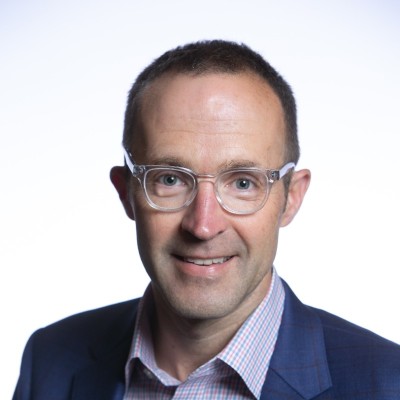
Jeff Bray is Senior Vice President and Head of Global Risk Management at Prologis. He oversees the company’s risk management strategy, including insurance programs, business resilience, and emerging risks. Prologis takes an innovative approach to risk, utilizing catastrophe bonds, parametric insurance, alternative risk transfer, and a captive insurer to optimize its cost of risk.
Jeff began his risk management career at AMB Property Corporation in 2005, which merged with ProLogis in 2011 to form Prologis, Inc. Prior to AMB, he was an insurance underwriter specializing in environmentally impacted real estate.
He holds a Bachelor of Science in Environmental Science from the University of Denver and an MBA from the Haas School of Business at the University of California, Berkeley. Jeff serves on the Governing Board of Junior Achievement of Northern California and actively supports Children’s Hospital Colorado and the Spencer Educational Foundation.
-
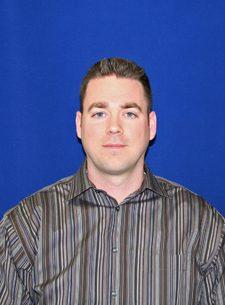
Dr. Butry joined NIST in 2006. From 1999-2006, he served as Economist for the USDA Forest Service, primarily researching the economics of wildland fire. Dr. Butry's formal training is in the areas of applied microeconomics and econometrics, with specialization in the fields of natural resource economics, environmental economics, and spatial statistics.
-
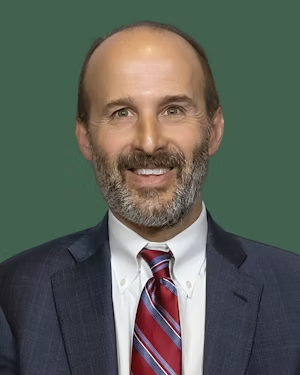
Chuck Chaitovitz is vice president for environmental affairs and sustainability at the U.S. Chamber of Commerce. For more than 25 years, he has specialized in environment and energy issues, working with companies on strategies to improve their bottom line and competitive positioning. At the Chamber, Chaitovitz is launching a new environment and sustainability capability to foster unique partnerships among the private sector, government, and civil society organizations. He works with members to support company leadership on sustainability — building the business case and the enabling conditions through commonsense public policy and the actions of member companies.
Previously, Chaitovitz co-founded The Coventry Group, LLP, a Virginia-based professional services firm focusing on strategic communications, marketing, and government relations. He developed new market opportunities and business plans for entrepreneurs, creating innovative environmental technologies. Chaitovitz also provided strategic counsel to clients on a range of international projects, including water and sanitation capacity building in West Africa, nutrient management best practices in Central and Eastern Europe, and U.S. water finance case studies to share with utility leaders across the Caribbean.
His experience in managing multi-stakeholder coalitions is underscored by his tenure as executive director of the U.S. Water Partnership — a public-private partnership of more than 120 U.S. private sector, government and civil society organizations to mobilize the best of U.S. expertise to address water challenges. There he helped launch, manage, and grow the Partnership and assisted in developing a multimillion fundraising campaign. Chaitovitz managed U.S. stakeholder participation in the Global Energy Assessment, the first comprehensive evaluation of global energy systems in more than a decade. He also coordinated the National Metal Finishing Strategic Goals Program (SGP) — a voluntary, environmental performance partnership of more than 500 companies, and state and local regulatory agencies for the EPA.
-

Mabel Chedid is a geotechnical engineer experienced in the evaluation of soil erosion problems, including bridge scour, levee overtopping, meander migration, dam internal erosion, and slope stability. Since joining WSP, Mabel has been involved in a variety of projects involving planning and managing geotechnical subsurface investigations, performing geotechnical analyses, and developing geotechnical design recommendations. Most recently, Mabel was involved in a corrosion mitigation project at the World Trade Center (WTC) Campus in New York City. This Design-Build project involved evaluating existing conditions, developing repair procedures and project specifications, and preparing the Design-Build contract documents. Mabel is currently the Deputy Project Manager on a Federal Highway Administration (FHWA) project aiming at developing a resilience framework for bridges and tunnels that are exposed to multiple – natural and anthropogenic - hazards. She is also the Deputy Project Manager on West Rail Yard (WRY) Segment of the Hudson Tunnel Project, also referred to as HYCC-3, which is part of Amtrak’s Gateway Program. Mabel is working on the geotechnical analysis and design (numerical modeling, foundation and support of excavation design) for the Baltimore and Potomac (B&P) Tunnel in Baltimore and for the near-surface facilities of the Queen-Brooklyn Tunnel (QBT), which is part of City Water Tunnel No. 3 in New York City. Mabel chairs the ASCE Geo-Institute Professional Practice Council and is a member of the ASCE Geo-Institute task force developing guidance on risk-informed design for geotechnical engineers. Prior to joining WSP, Mabel conducted research on soil erosion and bridge scour at Texas A&M Transportation Institute and earned her PhD degree from Texas A&M University in 2018.
-
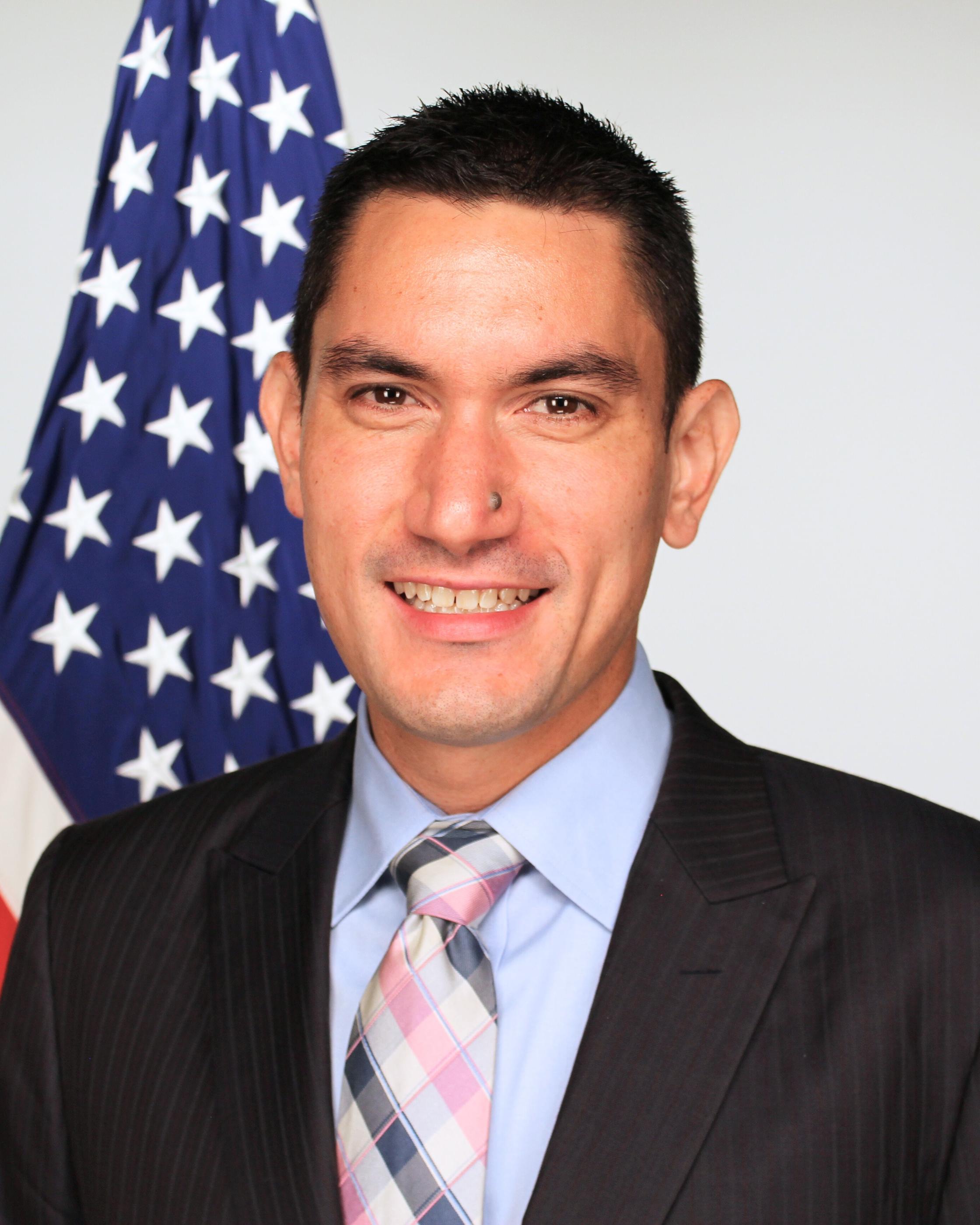
Christopher Clavin currently serves as the Senior Advisor for Resilience at the Engineering Laboratory of the National Institute of Standards and Technology (NIST). In this role, he leads and advises senior leadership in NIST’s Engineering Laboratory on initiatives that advance the resilience of the built environment to natural hazards. NIST’s Engineering Laboratory enhances the resilience of the built environment by developing guidance and tools that inform design practices for buildings and infrastructure systems facing a variety of natural hazards, while providing a foundation for improving standards, codes, community resilience, and disaster recovery planning.
-

Maggie Coates leads National Centers for Environmental Information’s (NCEI’s) Industry Proving Grounds (IPG) user engagement efforts, working with architects and engineers, insurers and reinsurers, and retailers to better inform NOAA of industry climate data needs. With a background in emergency management and critical infrastructure security, Ms. Coates has worked with the Cybersecurity and Infrastructure Security Agency, state and local governments, and the private sector on training and exercises for disaster mitigation and response.
-

Allison Crimmins is the Executive Director for NOAA's (National Oceanic and Atmospheric Administration's) Industry Proving Ground: an innovative effort to develop and share actionable climate information and improve the delivery of that information to industry partners.
She previously served as the Director of the Fifth National Climate Assessment at the White House Office of Science and Technology Policy and the US Global Change Research Program. In more than a decade of working for the US Environmental Protection Agency, Allison gained expertise in assessing climate impacts and risks, particularly on human health and the economy. She was an author of the 4th Assessment (2018), and led the U.S. Climate and Health Assessment (2016).
-
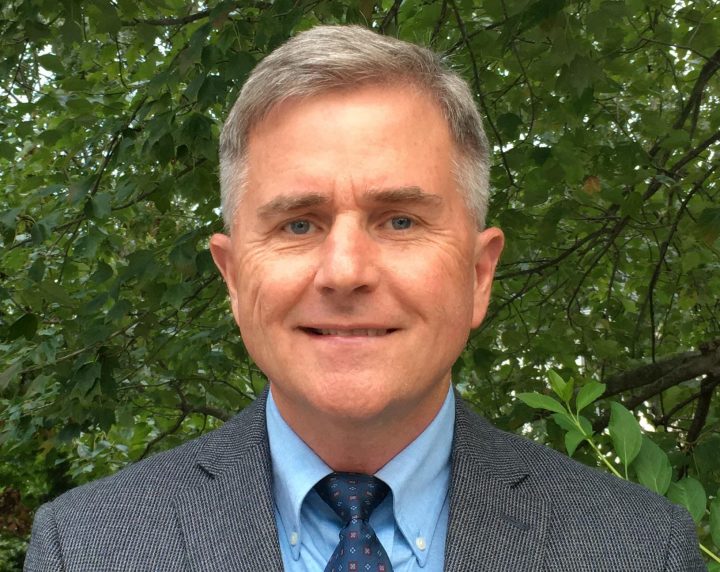
Throughout his tenure at GFDL, Dr. Delworth has been instrumental in advancing our understanding of climate variability, change, and predictability. His work, particularly in the realms of atmospheric and oceanic science, has been pivotal in shaping the current and future narrative of climate research. Dr. Delworth’s research focuses on such topics as the role of the ocean in the climate system, with emphasis on climate variability, change and predictability on seasonal to decadal to centennial time scales; interactions between forced climate change and internal variability; the Atlantic Meridional Overturning Circulation and climate; climate extremes, including drought and storms; and use of hierarchies of models to study climate variability and change.
-
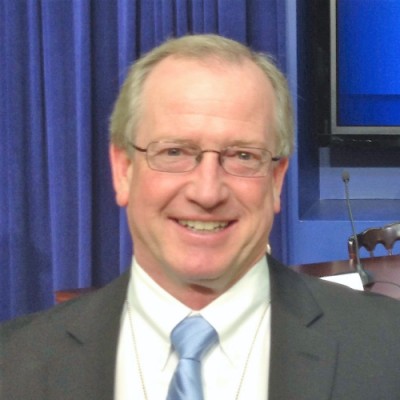
David Easterling is an international expert on the detection of climate change in the observed record, particularly as it relates to changes in extreme climate events. He has authored or co-authored more than sixty research articles in journals such as Science, Nature and the Journal of Climate.
Easterling joined NOAA in 1990 and has served in his current position for 15 years. After earning a PhD from the University of North Carolina at Chapel Hill, he joined the faculty in the Climate and Meteorology Department at Indiana University-Bloomington.
A major contributor to the UN’s Intergovernmental Panel on Climate Change (IPCC), Easterling is considered among the world’s top climate scientists. IPCC experts volunteer for a massive undertaking: to synthesize the most recent climate science findings every five to seven years, then prepare a written report. Of the five comprehensive written assessments issued by the IPCC since its founding in 1988, Easterling has contributed to the second, third and fourth assessment reports, serving as a lead author for the latter.
-
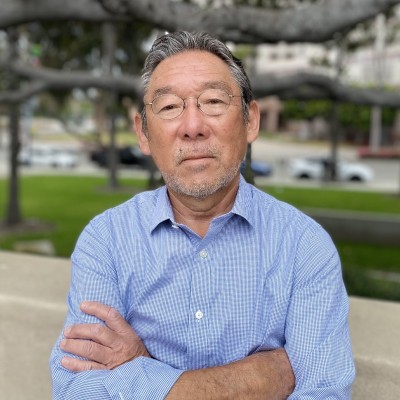
Mr. Eguchi is CEO and Co-Founder of ImageCat, Inc., a risk management company specializing in the development and use of advanced technologies for risk assessment and reduction. He currently serves or has served on several Editorial Boards including the Earthquake Engineering Research Institute’s Journal SPECTRA. In 1997, he was awarded the ASCE C. Martin Duke Award for his contributions to the area of lifeline earthquake engineering. In 2006, he accepted an ATC Award of Excellence on behalf of the ATC-61 project team for work on An Independent Study to Assess Future Savings from Mitigation Activities that showed that a dollar spent on hazard mitigation saves the nation about $4 in future benefits. He was recognized by EERI as the 2008 Distinguished Lecturer where he discussed the topic of “Earthquakes, Hurricanes, and other Disasters: A View from Space.” He recently chaired the Technical Committee on Advances in Information Technologies for the SEI Division of ASCE, a committee he started in 2015. He was awarded the 2017 Civil & Environmental Engineering Department Distinguished Alumnus Award from UCLA. In 2023, he was appointed to the California Governor’s Advisory Board on Wildfire Technology Research & Development, and in 2024, he was appointed as the Founding Chair of the National Institute of Building Sciences (NIBS) Lifeline Advisory Panel. In 2024, he was awarded the ASCE LeVal Lund Practice Award for Lifeline Risk Reduction. He has authored over 300 publications, many of them dealing with the seismic risk of utility lifeline systems and the use of remote sensing technologies for disaster response.
-
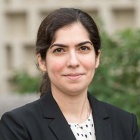
Negar Elhami-Khorasani is an Associate Professor in the Department of Civil, Structural and Environmental Engineering at the University at Buffalo. Her primary areas of research are structural fire engineering, performance-based design of structures at high temperatures, resilience of communities under extreme hazards, including wildfires and earthquakes, and characterization of multi-hazard events and their effects on structures and communities. Her research portfolio includes large-scale physical experiments, computational modeling, and the development of fundamental theory for the evaluation and design of structures and communities facing extreme events. Her research products enhance safety and enable resilience by developing codes, standards, and guidelines and minimize losses by optimizing mitigation, preparedness, and response strategies.
Her wildfire research has resulted in the development of a comprehensive framework for simulating fire spread in wildland-urban interface communities and conducting wildfire risk assessments. In 2023, her team modeled the Lahaina Fire on Maui in its immediate aftermath to analyze the drivers of loss. She is also involved in data collection and analysis of the 2025 Los Angeles wildfires and leads the modeling efforts. Her fire-spread framework is being adopted by officials in a Northern California city of 120,000 to enhance its Community Wildfire Protection Plans. Recently, she received a $2.4M Department of Energy grant to refine fire spread models and implement a system for tracking fire arrival times to critical energy infrastructure. Elhami-Khorasani was the co-chair of the ASCE/SEI Fire Protection Committee and is currently the co-chair of the SEAoNY Resilience Committee. She also serves on the Board of Directors of the Applied Technology Council, which is an internationally recognized organization dedicated to advancing engineering applications to improve societal resistance to extreme natural hazards such as earthquakes, wind, floods, and fires. She is an associate editor of Fire Technology, the peer-reviewed journal of the National Fire Protection Association and the Society of Fire Protection Engineering. She is also on the editorial board of Reliability Engineering and System Safety and an associate editor of the ASCE OPEN. Elhami-Khorasani has served as an external committee member for Ph.D. degrees in the US, Italy, Germany, Hong Kong, and South Africa. Her research has been funded by the US National Science Foundation, Department of Energy, United States Geological Survey, National Fire Protection Association, Department of Transportation, and other agencies.
-
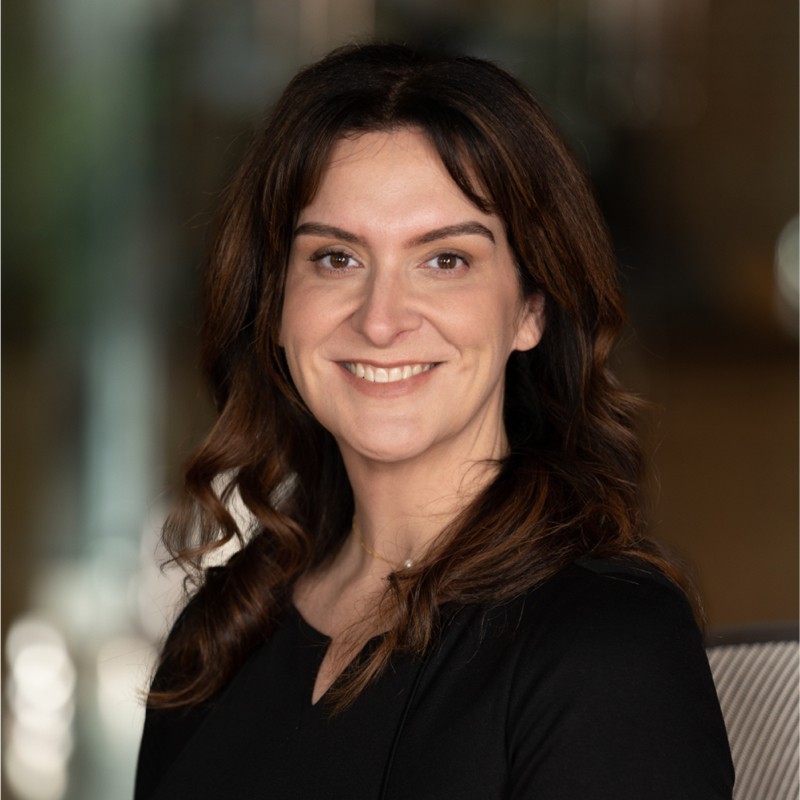
Natalie F. Enclade, Ph.D. is the Executive Director of BuildStrong America, the preeminent organization uniting a diverse coalition of dedicated stakeholders with a shared commitment to reducing disaster costs and fostering a more resilient America. Prior to joining BuildStrong, ran the Consumer Financial Protection Bureau’s (CFPB) Cornerstone Financial Well-Being Program and was the Director of Individual and Community Preparedness for the Federal Emergency Management Agency (FEMA). As Director, she oversaw programs that partner at all levels of government, the private sector, and community organizations to increase individual and community preparedness and encourage the development of disaster resilience across the nation.
She has served as the subject matter expert in homeland security, cybersecurity, and emergency management for the United States Senate Homeland Security and Governmental Affairs Committee (HSGAC). In this role, she was responsible for advising Committee and Senate leadership on general emergency management issues, FEMA, Stafford Act, cybersecurity, and critical infrastructure policy. This included major pieces of legislation, such as the game changing Disaster Recovery Reform Act (DRRA), fire grants reauthorization, and various programmatic mandates.
Natalie holds positions of responsibility across various organizations. She is a member of the Board of Directors for the National Institute of Building Sciences (NIBS) Multi-Hazard Mitigation Council (MMC) and serves on the Executive Committee for the NIBS Lifeline Advisory Panel, as well as the Committee on Finance, Insurance, and Real Estate (CFIRE). Additionally, she chairs the Resilience Policy Council for the Federal Alliance for Safe Homes (FLASH). Natalie’s expertise extends to disaster recovery, as evidenced by her past role on the Disaster Recovery and Continuity Executive Committee for the National Academies’ Transportation Research Board (TRB), where she contributed as a subject matter expert in disaster recovery alongside a team of researchers focused on addressing transportation-related needs and challenges during disasters.
She has a Ph.D. in Public Policy and Administration, specializing in emergency management policy, complemented by a Master’s in Public Policy and Administration, both earned at Mississippi State University. She received her undergraduate degree in Political Science from Millsaps College (Jackson, Mississippi). Currently, she serves as a graduate adjunct instructor, imparting knowledge in the realms of homeland security, emergency management, and public policy.
-
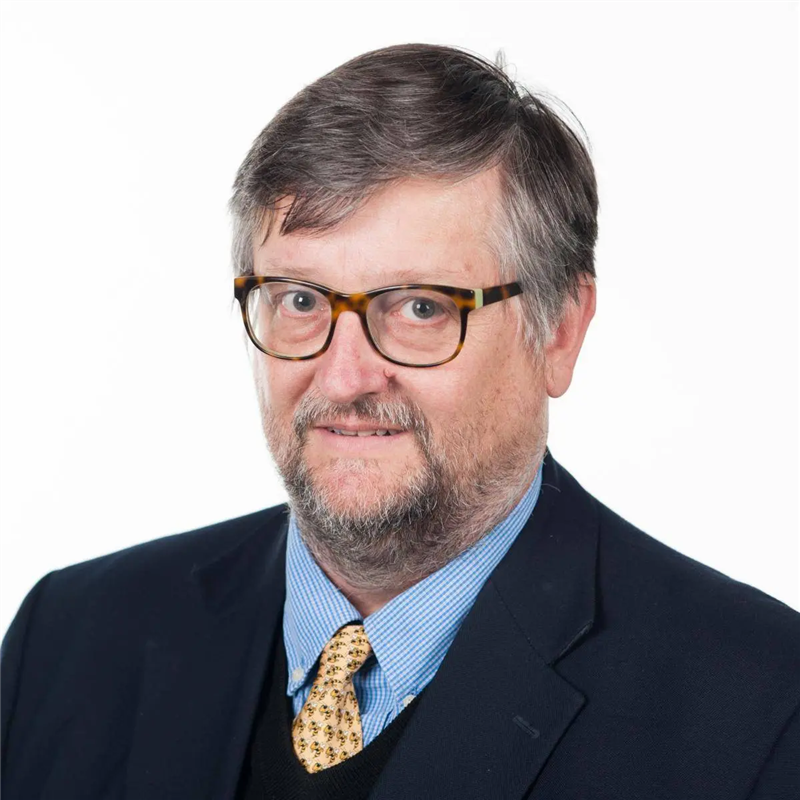
Dr. J. David Frost is a founding member and co-chair of the Geotechnical Extreme Events Reconnaissance (GEER) Association, an NSF sponsored organization that responds to natural and man-made geotechnical disasters worldwide. He has organized numerous workshops and conferences on the applications of spatial analysis tools to study both regional effects and damage patterns from earthquakes and the micro-scale response of liquefiable soils under various loading conditions. He is a regularly invited participant in conferences and workshops on disaster prediction, assessment and response. Most recently, he has been exploring how to bring experiences in disaster impacted areas into the classroom and has given presentations at TEXx Creative Coast and other meetings on “Ideas Stimulated by Extreme Events”.
Dr. Frost serves on a number of national and regional committees and boards. He is an active member of a number of professional organizations including ASCE, ASTM, EERI, CUREE and GEER. He serves as chair of the board of the Savannah Area Geographic Information System (SAGIS) and as a member of the Board of the Creative Coast Alliance. He is a member of the ASCE Geo-Institute Geo-Legislative Committee as well as the ASCE Infrastructure and Research Policy Committee and participates in annual legislative fly-ins to Washington, D.C. He is a registered professional engineer (PE) in the US and Canada and a Fellow of ASCE. In addition to his work at Georgia Tech, Frost is co-founder/owner of a software company that develops digital data collection software and systems with an emphasis on subsurface information. This company has provided data collection and management software systems for more than 350 clients worldwide.
Dr. Frost is the Elizabeth and Bill Higginbotham Professor of civil engineering. He received B.A.I and B.A. degrees in civil engineering and mathematics, respectively, from Trinity College, Dublin, Ireland in 1980 and M.S. and Ph.D. degrees in civil engineering in 1986 and 1989 from Purdue University. Prior to serving as a member of the faculty at Purdue University and Georgia Tech, he worked in industry in Ireland and Canada on a range of natural resource related projects ranging from tailings impoundments to artificial sand islands in the Arctic for oil exploration. At Georgia Tech, where he has been for almost 20 years, he has served as head of the Geosystems Engineering Group and as founding director of the Georgia Tech Regional Engineering Program and subsequently the Georgia Tech Savannah campus. A core focus throughout Frost’s career has been the study and analysis of natural and man-made disasters. His research is centered on the development and implementation of digital data collection systems for studying subsurface problems related to earthquakes and other disasters at multiple scales and he has received two U.S. patents for multi-sensor subsurface data collection systems. For more than 20 years, he has served on or led NSF-supported post-disaster study teams following earthquakes in US, Turkey, India, China and Chile as well as at the World Trade Center complex following the 9/11 attacks and he served as a member of the external review board for the NIST report on the Collapse of the World Trade Center Towers.
-
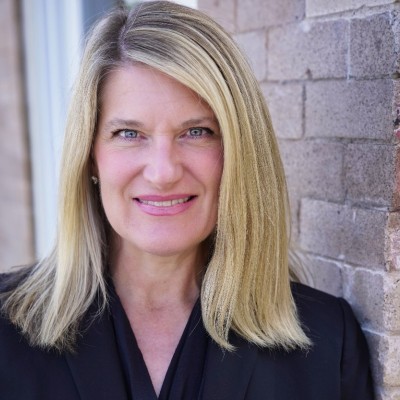
With deep knowledge and experience in the buildings industry, Jennifer Goupil is a passionate leader and a licensed engineer with more than three decades of experience in advancing the profession of structural and civil engineering through standards development and adoptions, educational program creation and growth, and advocacy. Currently serving as the American Society of Civil Engineers’ Chief Resilience Officer and Managing Director of the Structural Engineering Institute, Jennifer’s reputation for collaboration and consensus building, transparency, and effectiveness makes her a strong advocate and sought-after industry partner to allied organizations, associations, and federal agencies.
Her experience as a design practitioner at several premier engineering consulting firms, as the editor of Structural Engineer magazine, as well as past Director of Codes, Standards, and Technical Initiatives for the Structural Engineering Institute — where her purview included leading the development of ASCE/SEI 7 Minimum Design Loads and Associated Criteria for Buildings and Other Structures for more than a decade — has positioned her well to lead ASCE’s efforts to advance resilience in the built environment.
She earned her master’s degree in civil engineering at Cornell University and her bachelor’s degree in civil engineering from Virginia Tech. She is a fellow of ASCE and SEI, a member of the Structural Engineer’s Association of Colorado and of Washington and is a licensed professional engineer in Colorado.
-

Dr. Louis Gritzo is chief science officer and staff senior vice president for commercial property insurer FM, a leader in property loss prevention and business continuity. Gritzo is responsible for leading the strategic advancement of science and research at FM, including identifying emerging industrial risk trends and leading the development of scientifically proven solutions to prevent property loss and business interruption for key emerging hazards.
Gritzo’s prior responsibilities included overseeing activities at FM’s US$250 million, 1,600-acre Research Campus in West Glocester, Rhode Island, USA, the world’s largest center for property loss prevention research and testing, as well as scientific laboratories in Norwood, Massachusetts, USA. He also recently spearheaded development of a FM European research center on the future of industry, including automation and cyber security, and centers of excellence in Asia, Europe, and the Americas for the study of climate risk and climate resilience, work that supports sustainability performance for FM and its clients.
Prior to joining FM in 2006, Gritzo was manager of fire science and technology at Sandia National Laboratories in Albuquerque, New Mexico, USA, and was a member of its Advanced Concepts Group think tank.
He has served as chair of the American Society of Mechanical Engineers Heat Transfer Division Executive Committee, board chair of the Industrial Research Institute, on the governing board of the Global Earthquake Model, on the Research Foundation Board of Trustees and Research Advisory Committee for the National Fire Protection Association, and on advisory committees for several universities. In 2015, he was an invited panelist for two sessions at the United Nations World Conference on Disaster Risk Management in Sendai, Japan. He is also a contributing author to Forbes.com.
Gritzo has a Ph.D. in mechanical engineering, with a minor in applied mathematics, from Texas Tech University, USA.
-

Alice C. Hill is an expert on building resilience to catastrophic risks. She previously served as Special Assistant to President Barack Obama and Senior Director for Resilience Policy on the National Security Council staff where she led the development of national policy, including executive orders related to natural disasters, national security, and climate change. Prior to this, Hill served as senior counselor to the Secretary of the U.S. Department of Homeland Security (DHS). At DHS, she led the formulation of the department’s first-ever climate adaptation plan and the development of strategic plans regarding catastrophic biological and chemical threats, including pandemics. Hill currently serves as the David M. Rubenstein Senior Fellow for Energy and the Environment at the Council on Foreign Relations and was a Research Fellow at Stanford University’s Hoover Institution. She is the author of The Fight for Climate After COVID-19 and co-author of Building a Resilient Tomorrow. She currently serves on the boards of the Environmental Defense Fund and Munich Re Group’s U.S.-based companies. In 2020, Yale University and the Op-Ed Project awarded her the Public Voices Fellowship on the Climate Crisis. Earlier in her career, Hill was a supervising judge on both the Los Angeles Municipal and Superior Courts as well as a federal prosecutor and chief of the white-collar crime unit at the United States Attorney’s Office in Los Angeles, California.
-
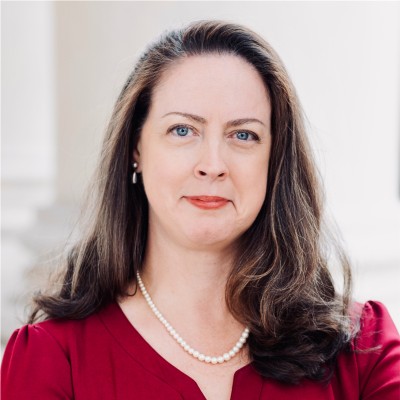
Dr. Maria Honeycutt, CFM is AtkinsRéalis’ National Director for All-Hazards Resilience, aligning and enhancing resilience services across the firm’s planning, design, construction, and asset management portfolios. Prior to rejoining AtkinsRéalis in 2022, she spent 14 years with the U.S. National Oceanic and Atmospheric Administration (NOAA) Office for Coastal Management focused on national flood policy and supporting science. For 3 years, she was detailed from NOAA to the White House’s Office of Science and Technology Policy, serving two Presidential Administrations as Assistant Director for Resilience S&T. There she led the federal interagency in developing a novel framework for identifying and aligning investments toward societal dimensions of resilience, and spearheaded efforts to bring best-available, actionable climate science to support implementation of the Federal Flood Risk Management Standard.
Prior to joining NOAA, Dr. Honeycutt served as a Congressional Science Fellow in the office of U.S. Senator Bill Nelson, and spent the preceding seven years as an engineering consultant supporting coastal flood mapping and hurricane recovery on the Gulf Coast for FEMA. Dr. Honeycutt earned a B.A. in geology from Smith College, an M.S. and Ph.D. in oceanography from the University of Delaware, and is professionally registered as a Certified Floodplain Manager.
-
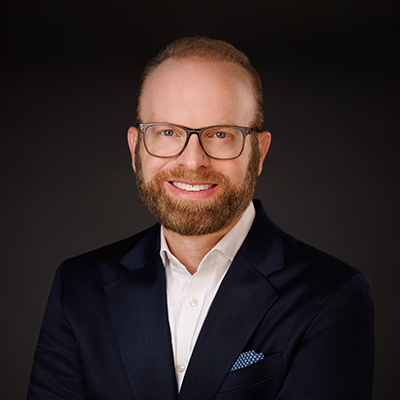
Daniel Kaniewski is Managing Director, Public Sector, Marsh McLennan. In this role he leads enterprise-wide initiatives that deliver breakthrough perspectives and innovative solutions for public sector challenges.
Prior to joining Marsh McLennan in February 2020, Dr. Kaniewski was the second-ranking official at the Federal Emergency Management Agency (FEMA). As the agency’s first Deputy Administrator for Resilience, he launched and led the disaster resilience programs that are now a cornerstone of FEMA’s mission.
In addition to his FEMA role, he was Chair of the Organization for Economic Cooperation & Development (OECD) High-Level Risk Forum, comprised of risk managers from the 36 OECD member nations.
Prior to FEMA, he launched the global resilience practice at a leading catastrophe risk modeling firm, directed resilience programs at a Department of Homeland Security (DHS) research center, and co-founded a homeland security think tank.
He holds a Ph.D. in Public Policy and Administration from George Washington University, an M.A. in National Security Studies from the Georgetown University School of Foreign Service, and a B.S. magna cum laude in Emergency Medical Services from George Washington University.
-
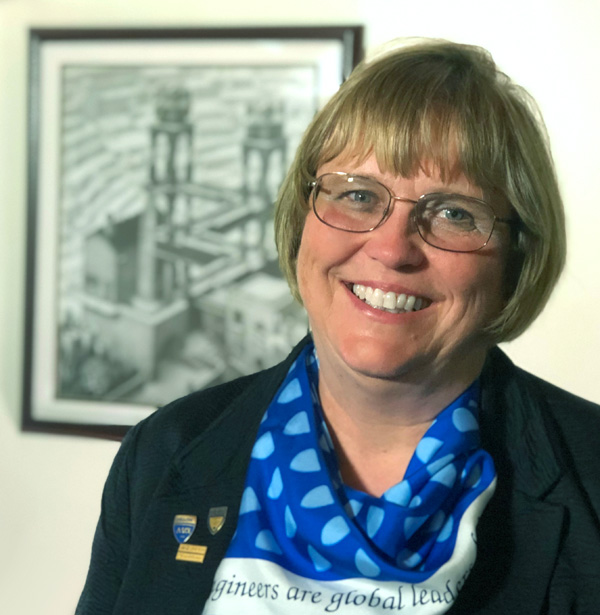
Maria Lehman has more than 40 years of diverse experience in transportation and buildings from planning through decommissioning, with capital expenditures to $3.9 billion. Currently, Lehman leads the U.S. infrastructure business at GHD, focusing on federal and New York State (NYS) government relations programs and provides strategic expertise for markets and specific pursuits. She was the Acting Executive Director and Chief Operating Officer of the NYS Thruway Authority; VP for Infrastructure in the Northeast for Parsons Corporation; and Commissioner of Public Works for Erie County, NY, among other roles. In October 2022, Lehman started her term as President for the American Society of Civil Engineers, a professional society with 150,000 members in 177 countries. She was also recently appointed to the President’s National Infrastructure Advisory Council. Lehman received her bachelor’s degree in civil engineering from the State University of New York at Buffalo (magna cum laude) and is a licensed professional engineer in several states.
-
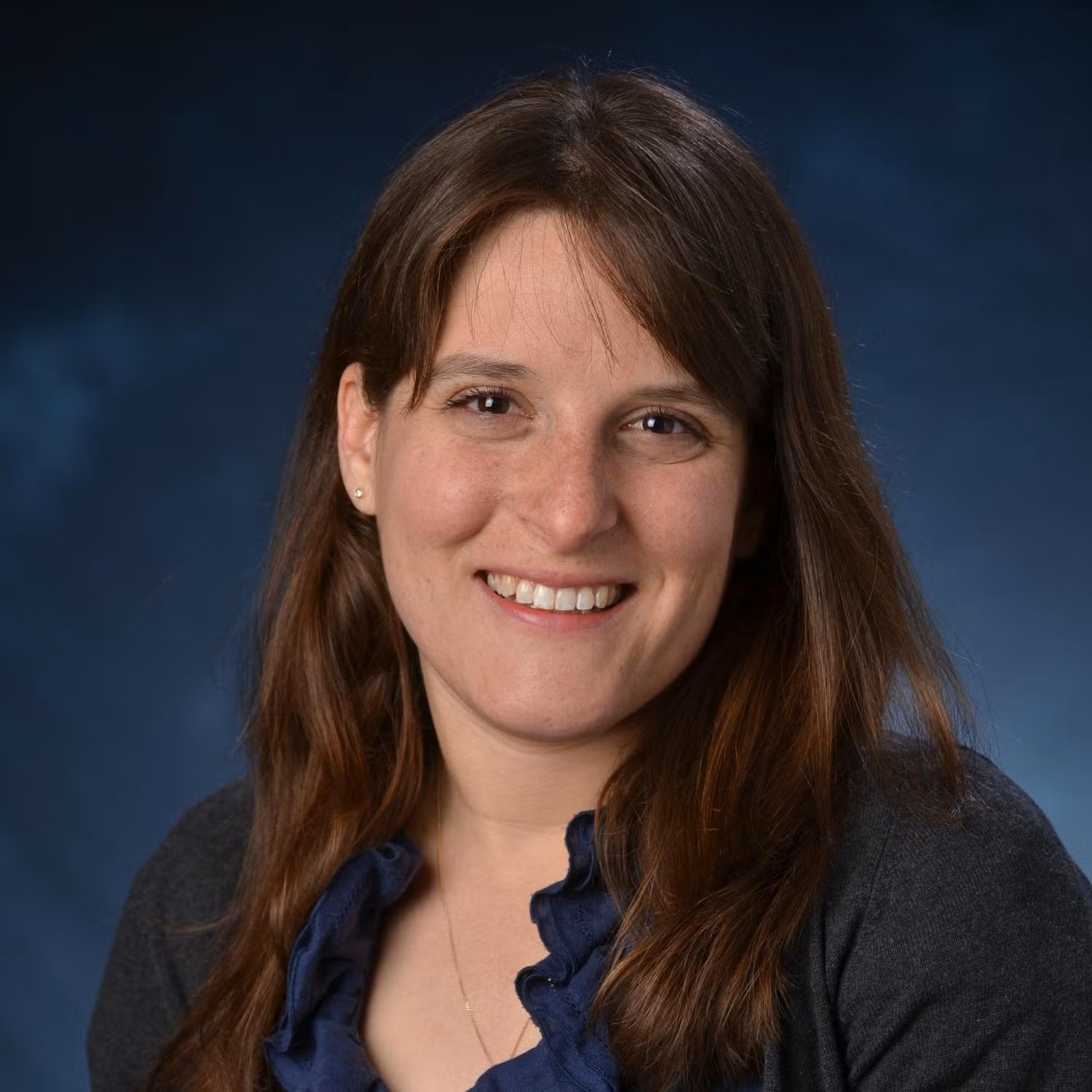
Abbie Liel is a professor of Civil, Environmental, and Architectural Engineering at the University of Colorado, Boulder. Her work focuses on finding new ways to design and assess structures to withstand extreme conditions, to make structures safer and more sustainable.
Abbie is involved with the American Society of Civil Engineers (ASCE), contributing to the development of ASCE 7, a widely used set of building requirements and standards that protect the safety and welfare of the public. She serves as chair of the subcommittee tasked with making climate-change-related recommendations for all ASCE 7’s hazards, and she is a member of several other committees that manage engineering codes and criteria.
She recently received an Applied Technology Council Award for Excellence for Extraordinary Achievement in Development of Applications for Seismic Performance Evaluation. She is a licensed PE in the state of California and a Fellow of the American Society of Civil Engineers.
-
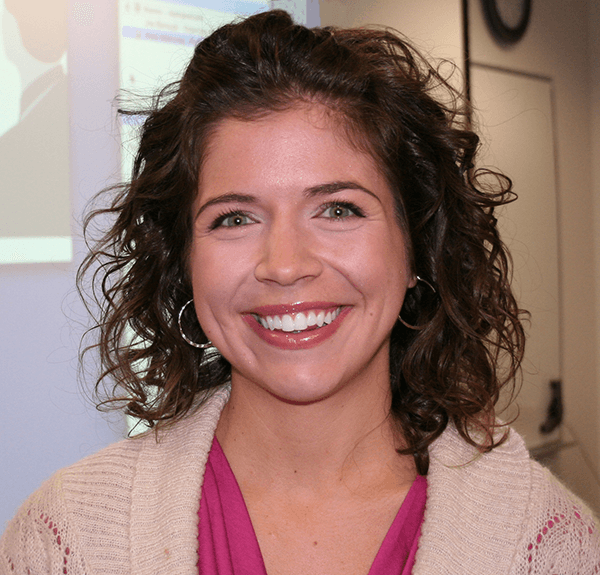
Kelly came to NOAA ESRL as a postdoctoral research fellow with UCAR's Postdocs Applying Climate Expertise (PACE) program. Her PACE appointment was supported by NOAA, the Western Water Assessment, and the US Bureau of Reclamation. She worked as a CIRES Research Scientist from 2011 - 2015, and joined NOAA in 2015.
Kelly's research background is in weather forecasting and severe weather, with a focus on extreme precipitation and the research applications thereof. Her research at NOAA ESRL has included work on warm season extreme precipitation events in the Front Range of the Rocky Mountains, and understanding how these types of events may change in future climate scenarios. She also works on many other regional studies, focusing more recently on problems at the atmospheric-hydrologic interface, seeking to improve understanding of how extreme events can be better anticipated from both atmospheric and hydrologic perspectives. She enjoys working with stakeholders at the local, state, and federal levels to better inform water management, forecasting, and emergency preparedness.
-

Norma Jean Mattei, Ph.D., P.E., is an Emeritus Professor in the Department of Civil and Environmental Engineering at the University of New Orleans. President Biden recently appointed Mattei to the National Infrastructure Advisory Council (NIAC). She just completed ten years as one of two civilian civil engineer Commissioners on the Mississippi River Commission (MRC), nominated by President Obama. She was 2017 President of the American Society of Civil Engineers (ASCE), chairing that organization’s Board of Direction that year. She is currently on the Executive Committee of CROSS-US, President of Coasts, Oceans, Ports and Rivers Institute (COPRI) and locally serves on the ASCE New Orleans’ Chapter of the Structural Engineering Institute, and several non-profit organizations such as the Water Institute of the Gulf and GNOSTEM. Norma Jean also has served in the past on several National Council of Examiners for Engineering and Surveying (NCEES) committees and task forces, most recently serving as chair of the Board-level NCEES Education Committee and is an Emeritus Member of NCEES. She was named by the Governor of Louisiana to LAPELS, Louisiana’s licensing board for professional engineers, serving as Chairman of the LAPELS Board in 2011-12. She, her husband, two engineer daughters and engineer son-in-law all reside in New Orleans.
-
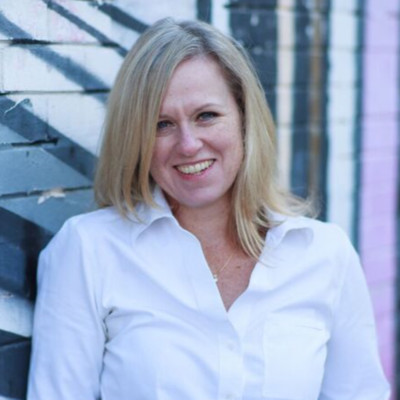
Mary Clare is working with others across the organization to quantify and qualitatively assess NT’s impact on climate change as well as potential impacts, risks, and opportunities that climate change presents to NT. She previously worked as an Environmental Credit Risk Director for a large financial institution evaluating environmental risks associated with borrowers and their commercial real estate. She began her career in the environmental consulting industry.
Mary Clare holds Bachelor and Masters of Science degrees in Geology from the University of Iowa. In addition, she has completed significant course work toward a Master of Business Administration from the Illinois Institute of Technology, Stuart School of Business. Mary Clare serves on the board of the Environmental Bankers Association (EBA), The Climate Initiative, and She.Became.Inc.
-
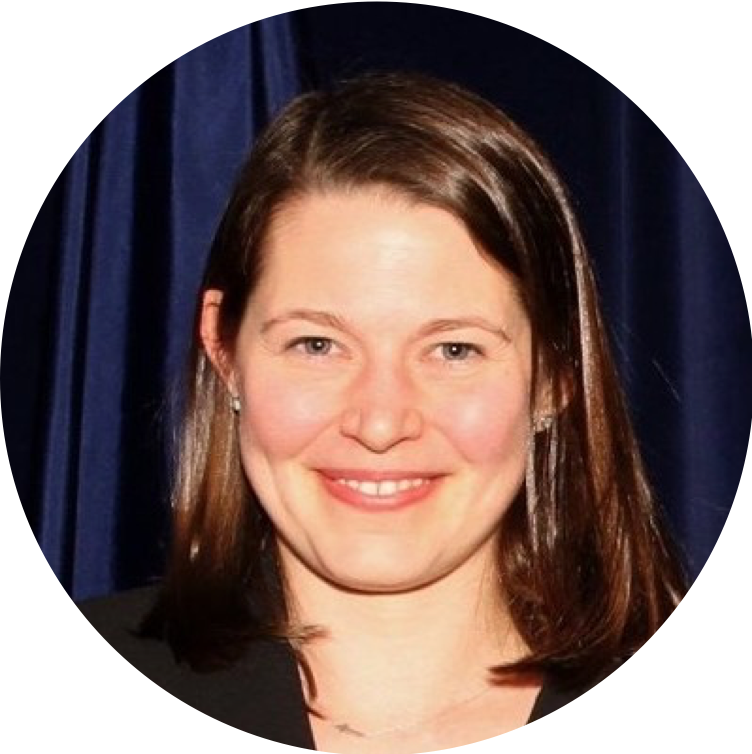
Amanda McCarty is the Director of NOAA’s Climate Ready Nation initiative. Amanda leads efforts to enhance NOAA's ability to connect with partners and provide the essential products and services that support resilience for communities and businesses in the face of costly disasters. Her mission is to ensure that decision-makers are able to benefit from NOAA’s investments in the next-generation science, partnerships, programs, and initiatives that strengthen the capacity for communities, our government, and businesses to adapt to disaster impacts, as well as foster resiliency for the future.
Amanda returned to NOAA after three years as a Senior Advisor at the Department of State, leading efforts to enhance climate partnerships with key partners around the world. Previously, Amanda spent over 14 years at NOAA, as the Division Director for the Fishery Monitoring and Research at the Northeast Fisheries Science Center, Assistant Director for Programs and Partnerships and Acting Deputy Director of the National Sea Grant Office, Program Manager and Policy Analyst in NOAA’s Climate Program Office, and a Legislative Fellow with the U.S. Senate Commerce Committee.
Amanda has a B.S. in biology from Pacific Lutheran University and an M.S. in marine biology from the College of Charleston. Amanda is also a graduate of OAR's Leadership Effectiveness and Advancement Program (LEAP), NOAA's Leadership Competencies Development Program (LCDP), and the Mastering Executive Leadership program at the Gestalt International Study Center.
-

Ellen is an interdisciplinary scientist with expertise in climate science and societal risk management, partnership development, and engagement across the public and private sectors. With 28 years in federal service, she is an experienced strategist and leader supporting efficient cross-sectoral collaboration with key partners at scales ranging from the local level to the international realm.
Ellen recently served as the National Oceanic and Atmospheric Administration’s (NOAA) Regional Climate Services Director for the Eastern Region (16 states). As a senior leader in NOAA, she focused on the delivery and interpretation of climate information using networks across several critical economic sectors of the Eastern region including insurance, transportation, health, energy, and others. In addition, she was a leader at the international level as the U.S. co-lead for the Gulf of Maine Council’s Climate Network. Ellen is a recognized climate expert and communicator, having served as the Coordinating Chapter Author for the Northeast regional chapter of the U.S. Global Change Research Program’s Fourth and Fifth National Climate Assessments, and a leader for several federal interagency partnerships. Ellen built a successful reputation for distilling, translating, and coordinating information, services and products for a diverse group of stakeholders across regional, state, and local geographies and specific sectors. Ellen is a champion for climate services and led the agency-wide team that developed the model for Service Delivery that drove a culture change across NOAA. Ellen is known for transparent communication and trust building with customers across multiple levels, and works to ensure they can find and use the nation’s authoritative climate information.
-

As Chief Resilience Officer, Holly guides AEI’s culture and organizational sustainability, and is passionate about serving AEI’s staff of employee owners and community of clients in the commercial real estate finance, development, investment, and management space. Holly frequently provides training on risk management, property due diligence, climate risk evaluations, and physical risk and resilience in commercial real estate decision-making. Holly has worked in environmental consulting since 1996, serving with AEI since 1999, initially in a Project Manager role.
Ms. Neber served as the Chair of Task Group E3429-24 Standard Guide for Property Resilience Assessment within ASTM International’s ASTM E06 Performance of Buildings. Ms. Neber served as the 2019 President of CREW Network and is a Past President of the National Engineering and Environmental Due Diligence Association (NEEDDA) and past Board Member of the Real Estate Roundtable. She currently serves on the Commercial Real Estate Finance Council (CREFC) Sustainability Steering Committee, Berkeley Fisher Center for Real Estate Policy Advisory Board (PAB), and is an affiliate member of the Environmental Bankers Association (EBA). Honors and recognition include: RealShare’s California Women of Influence, Bisnow’s Bay Area Power Women, Real Estate Forum Women of Influence, Connect Media Women in Real Estate, Courage in Leadership Award, The Registry’s Elevate Award for Industry Impact, and Globe Street Best Bosses. Holly is a frequent presenter including for organizations such as CREW Network, Moody’s, Environmental Bankers Association, Commercial Real Estate Finance Council, and the Urban Land Institute.
-
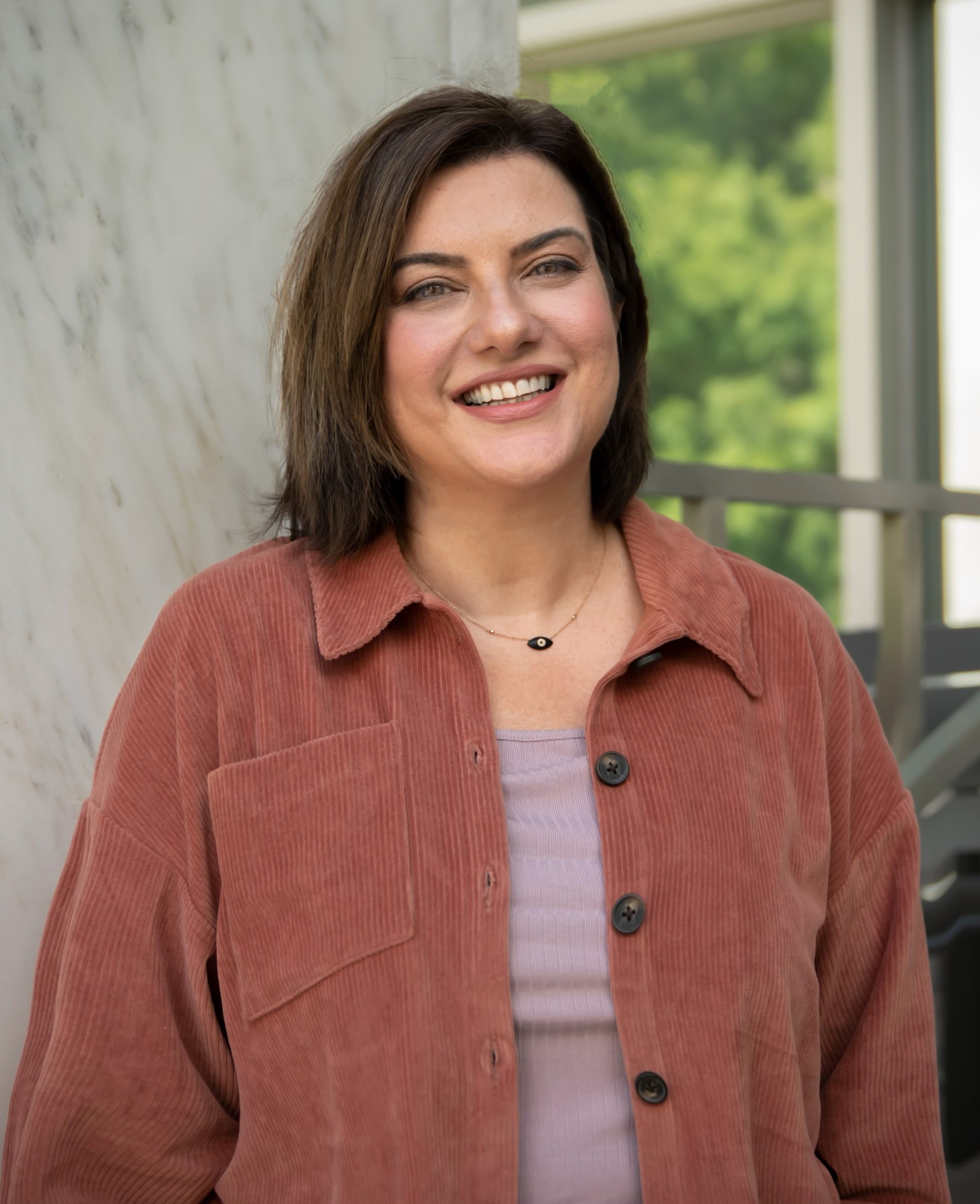
Sissy Nikolaou serves as Project Lead Investigator at the National Institute of Standards and Technology (NIST) under the National Construction Safety Team (NCST) Act for the Investigation to the 2021 partial collapse of Champlain Towers South building in Surfside, FL that claimed 98 lives. In this role, she contributes to finding the likely causes of this disaster and making recommendations to improve the safety of buildings to ensure a tragedy like this does not happen again. Prior to joining NIST, she worked for over 25 years in consulting geotechnical and earthquake engineering with global experience involving lifeline systems, critical facilities and dams, water/power plants, data centers and high-rise buildings, with a focus on resilience-based design, soil-structure interaction, and multi-hazard risk assessments. Dr. Nikolaou has provided technical leadership and management of signature projects such as the M. Cuomo, Queensboro, RFK, and Woodrow Wilson Bridges, JFK AirTran and LGA Airports, USTA, Citi Field and Yankee Stadia, Washington DC Convention Center, NIH headquarters, and high-speed rail in California, and international challenging US remediation projects in war zones in Iraq and Afghanistan, US Embassies, and super tall buildings in Mexico City. Driven by a desire to protect populations and help them emerge stronger from disasters, Dr. Nikolaou has led US reconnaissance missions after earthquakes and hurricanes around the world and was part of the 9/11 Terrorist Attack and Hurricane Sandy response/recovery work, while she has played a key role in code developments for seismic and other extreme events. She has served as Director of the Earthquake Engineering Research Institute (EERI), Applied Technology Council (ATC), as 2023 President of ASCE’s Geo-Institute, and serves as advisory member of the NSF-funded GEER Association, and founding vice-chair of the Lifelines Hub of the National Institute of Building Sciences (NIBS). Her current research focuses on decision-support frameworks as a better-than-code approach for infrastructure networks with considerations on life cycle, hazards, and financial investment prioritization. This work addresses recommendations of the NIST-FEMA Functional Recovery for Buildings and Infrastructure Report (NIST SP-1254) to Congress – a collective effort which was recognized with the highest honor of the US Department of Commerce, its 2024 Gold Medal. Other recognitions of Dr. Nikolaou include the Prakash Prize for Excellence, the WSP Technical Fellow of Earthquake Engineering distinction, a Board Certification by the Academy of Geo-Professionals (AGP) and being named 2025 Engineer of the Year by her alma-matter, the University at Buffalo.
-

Darren Olson is a Professional Engineer with over 20 years of experience in water resources engineering. He is responsible for engineering studies and design that include complex roadway drainage projects, watershed studies, floodplain/floodway delineation studies and permitting, steady and unsteady urban hydraulic analyses, stormwater management studies and permitting, and flood control project feasibility, design, and funding.
With this knowledge he is the Stormwater Consultant for several municipalities in the Chicagoland area. He is actively involved in ASCE as a Region 3 Governor and recently appointed to the Committee on Americas Infrastructure. Computer modeling skills include FEQ, HEC‐RAS, HEC‐HMS, HEC‐1, HEC‐2, WSP‐2, XP‐SWMM, and GIS applications.
-
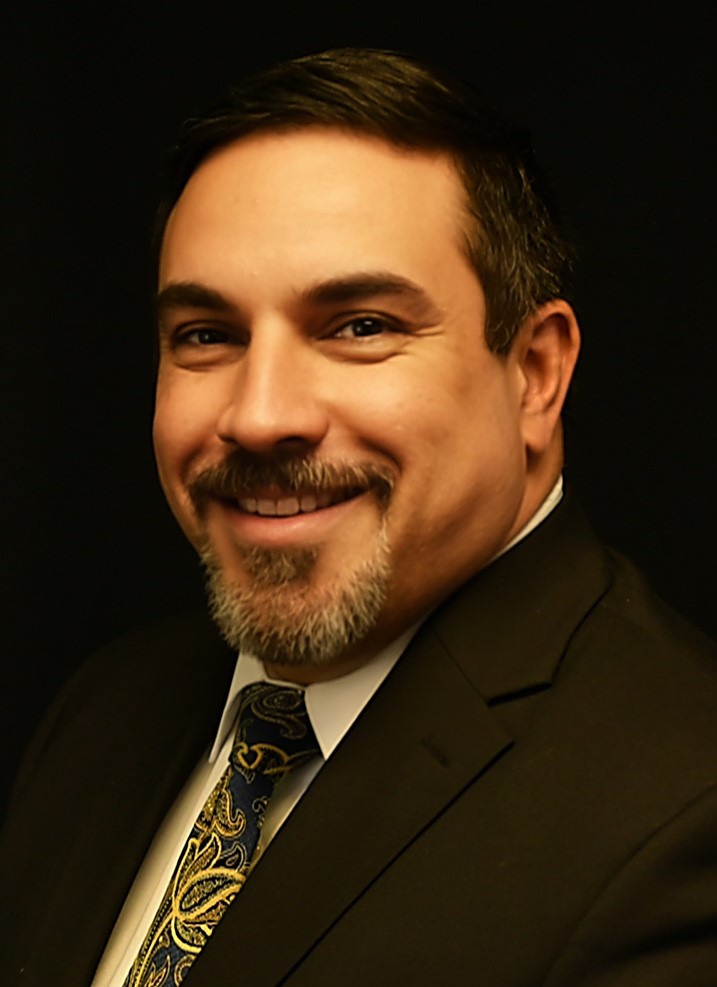
Constadino (Gus) Sirakis is a licensed Professional Engineer with several decades of experience in improving construction standards and ensuring compliance with the Building Code. As the NYC Department of Buildings' (DOB) Deputy Commissioner of Development & Technical Affairs, DC Sirakis leads another revision of the Construction Codes, that includes the incorporation of all DOB requirements into one single set of rules for existing buildings - an unprecedented effort that will help building owners more readily comply with DOB regulations.
Gus joined DOB in 2006. In recent years he served as Assistant Commissioner of Technical Affairs and Executive Director of Technical Affairs where his projects included the revision of the structural provisions of the 2008 and the 2014 Construction Codes, the establishment of DOB's Concrete Enforcement Unit, and the development of DOB's Special Inspection Requirements for new technology, materials, and national standards.
Since beginning his professional career, Gus has worked as a structural engineer and project manager at several architectural and engineering consulting firms, designing, inspecting and overseeing various projects, including sports stadiums and high-rise buildings, both here and abroad.
DC Sirakis is respected by colleagues and stakeholders alike. He is the recipient of multiple awards and has served with distinction on the International Code Council since 2007. Gus holds a Bachelor of Science degree in Civil Engineering from Polytechnic University in Brooklyn, NY.
-

Jerry is a Senior Bridge Engineer and the seismic specialist at the Office of Bridges and Structures, FHWA. He manages the Seismic and Multi-Hazard Resilience Program which facilitates development and deployment of bridge and tunnel technologies that promote highway network resilience to protect lives and boost economic growth. He serves as a liaison to the American Association of State Highway and Transportation Officials (AASHTO) Seismic Committee, relevant National Cooperative Highway Research Program (NCHRP) projects, and Pooled Fund studies.
He has a bachelor’s degree in Civil Engineering from National Taiwan University, a master’s degree and a Ph.D. degree from the University at Buffalo. His study and past work encompass earthquake engineering, bridge hydraulics, bridge aerodynamics, coastal issues, and risk-informed asset management.
-

Terence Smith is Chairman and Chief Executive Officer of Smith’s Research & Gradings, which he founded in 1992, to provide analytics for the financing of critical infrastructure assets for the investment community. In addition to a bi-weekly publication, Smith’s Conferences provide unique forums for investors and issuers to discuss matters of mutual interest. Mr. Smith launched Smith’s All-Star Analysts Program in 1992 to provide recognition for excellence in municipal analysis.
Mr. Smith is also Chairman and Chief Executive Officer of Smith Information Services (SIS), LLC, which provides consulting on critical infrastructure assets for sovereign, sub-sovereign and non-governmental organizations. In 2017, Mr. Smith led his team in the United Nation’s Global Climate Change Contest to be named one of five finalists from among more than 147 countries. His Waste Heat Energy Exchange team made a presentation at the United Nation’s in New York City, which was broadcast around the globe to more than 45,000 people.
-

A dedicated member of the American Society of Civil Engineers (ASCE) for more than 25 years and a civil engineer by training, Tom Smith served as the association's deputy executive director and general counsel before becoming the executive director and secretary in January 2015. Smith also serves as a director on the board of the ASCE Foundation. Responsible for the day-to-day management of the Society, Smith leads a staff of over 200 and an active volunteer workforce of over 10,000, facilitating ASCE's tradition of providing high-quality products and services to more than 150,000 members in 177 countries, in all civil engineering disciplines and at all points of their career paths.
Before joining ASCE, Smith practiced law in Northern Virginia with the firm of Hazel & Thomas, P.C., now combined with Reed Smith, LLP. While in this position, Smith focused on commercial, construction and land use litigation in federal and state courts, and land use applications for commercial, industrial and residential development.
In addition to his master's degree in structural engineering and bachelor's degree in civil engineering from the University of Virginia, Smith holds a law degree from Washington & Lee University. He is admitted to the bar in Virginia and the District of Columbia. He is also a Certified Association Executive (CAE) and an Envision Sustainability Professional (ENV SP).
Outside of ASCE, Smith serves as a trustee on the board of the United Engineering Foundation (UEF), where he serves on the Grants Committee and as chair of the Nominating Committee. He is a member of the American Society of Association Executives’ (ASAE) Key Professional Activities and Key Global Activities Committees, as well as the U.S. Chamber of Commerce Committee of 100, Chi Epsilon Civil Engineering Honor Society, and Order of the Engineer.
In 2020, Smith received the University of Virginia Engineering Distinguished Alumni Award, and in 2011, he received the ASCE William H. Wisely American Civil Engineer Award.
-

Kristina Swallow is currently Assistant City Manager for the City of Tucson, Arizona. Swallow oversees a variety of key departments and programs that are essential to the growth and development of Tucson. These include Parks and Recreation, Planning and Development Services, Environmental and General Services, Transportation and Mobility, Climate Action, the Tucson Development Center, and Economic Initiatives. She previously served as the director of the City of Tucson's Planning and Development Services Department. Prior to that, she served as the Director of the Nevada Department of Transportation, where she managed an annual budget of $1 billion and led a team of 1,800 employees in the planning, construction, maintenance, and operations of the state highway system.
-

Will Veatch leads the US Army Corps of Engineers (USACE) Climate Preparedness and Resilience Community of Practice (CPR CoP), a community of 250+ professionals who help mainstream climate preparedness into all USACE missions, operations, programs, and projects. Prior to leading the CPR CoP, Mr. Veatch worked as a hydrologist in the USACE New Orleans District beginning in 2008, where his duties included river forecasting, data management, and supporting engineering studies and designs with statistical analyses of river flow, precipitation, and coastal water levels. He is a national Subject Matter Expert in the areas of sea level change adaptation and inland hydrology nonstationarity, is a member of numerous interagency teams, and has served on international partnership missions in the Netherlands, Brazil, and South Korea. Mr. Veatch holds a BA in Environmental Studies (Hydrology focus) from the University of Colorado, an MS in Hydrology from the University of Arizona, and a PhD in Civil and Environmental Engineering from the University of Iowa. He is a registered Professional Hydrologist with the American Institute of Hydrology.
-

Dan Walker is a Senior Geologist with EA Engineering, Science, and Technology, Inc. PBC) and the Center for Technology and Systems Management within the U. of Maryland’s Department of Civil and Environmental Engineering. Prior to his current positions, Dan was Director and Chief Climate Scientist for the Computer Sciences Corporation (CSC). With a PhD degree in geology from the University of Tennessee, Dan has been involved with strategic planning and management of state and federal science for nearly 30 years. After occupying early positions with the states of Kentucky and North Carolina, he began his career in national and international science policy in 1996 as a program analyst with the National Academies. During an eleven-year career, Dan directed 19 National Academy studies over a range of topics from coastal and ocean science, water resource management, oil spill impacts and response, to the national security implications of environmental and climate information, eventually being named a National Academies’ Scholar in 2006. Dan then served the White House Office of Science and Technology Policy (OSTP) from 2006 to 2009, completing his tenure at OSTP as Assistant Director for Environment. Dr. Walker has served as a Principal and Co-Chair on various U.S. federal interagency committees and bodies, as well as a U.S. Delegate to the International Panel on Climate Change (IPCC) from 2007 to 2010. Dan also served as Chief of the Climate Assessment and Services Division of NOAA’s Climate Program Office, where he managed NOAA’s Climate and Societal Interactions Program from 2009-2010. Dr. Walker is a frequent speaker at climate and ocean policy meetings and panels and is an active member of the American Society of Civil Engineers (ASCE). In addition to being a founding member of ASCE’s Committee on Adaptation to a Changing Climate (CACC), Dan is past-chair of the CACC Executive Committee and co-chairs the ASCE - NOAA Task Force on Climate Resilience in Engineering Practice. A current author (coastal effects) of the 5th U.S. National Climate Assessment, Dr. Walker is also a member of the American Meteorological Society, the American Geophysical Union, and ASTM International. Dan is also proud to be a Lifetime Member of the Geological Society of America.
-

James is a research meteorologist with GC Global Strategic Advisory, responsible for extreme weather advisory and post-event analysis, and testing and evaluation of catastrophe models. He also represents GC on the Insurance Institute for Business and Home Safety Research Advisory Council. Prior to joining Guy Carpenter in 2012, James worked with a team to define tornado-prone regions for the National Building Code of Canada, and also reviewed Canadian snow and wind loads under present and projected climate conditions, while working with the Climate Adaptation Group at Environment Canada. Practical experience includes instrument testing and evaluation, weather observation networks, and deployment of a marine observation station. He earned his B.A.Sc. in Engineering from the University of Waterloo, and graduate degrees in Meteorology from Florida State University, where he was also an instructor.
-

Erik is a structural engineer in HNTB’s New York bridge group and has more than fifteen years of experience in the bridge industry. He received a master’s degree from Columbia and has taken on various roles at HNTB including biennial inspector, designer of new and rehabilitated structures, construction support services coordinator on major projects and most recently in the owner’s engineer role at the Governor Mario M. Cuomo Bridge. A constant thread through his career has been the application of structural health monitoring, advanced non destructive testing and the use of programming languages to evaluate large data sets.
He is also an AWS Cloud Certified Cloud Practitioner and routinely leverages cloud computing to post process and analyze extreme weather and freight data. His projects are focused on better quantifying the demand on our transportation network and understanding the evolving risks our structures face.

